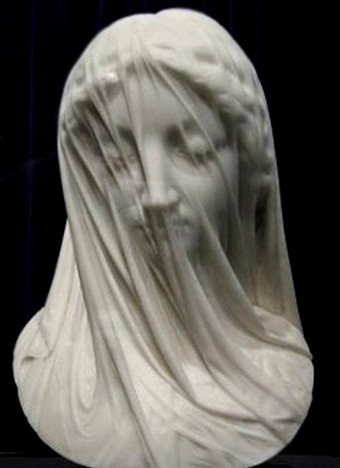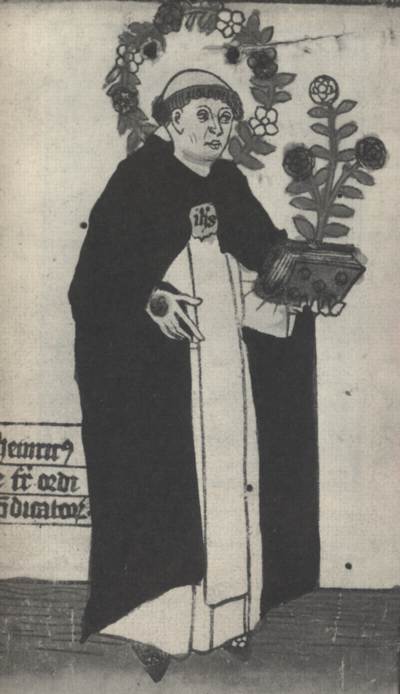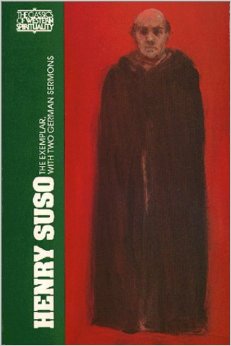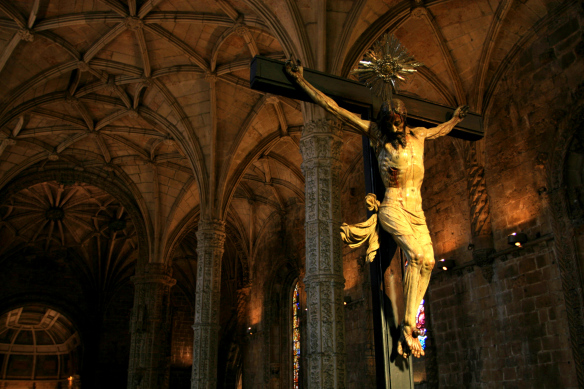I am immensely enjoying Henry Suso’s ‘The Life of The Servant’. Spiritually directing, the work also possesses an entertaining value I associate to a finely written novel. The adventures, or better yet the misadventures, of the eternal servant insightfully remind me of two classic novels Voltaire’s ‘Candide’ and Jerzy Kosinski’s ‘The Painted Bird’. Ideas on suffering are the bonding element. Suso’s servant of eternal wisdom, the fourteenth century German Dominican preaching friar, should never wander away from his friary. Every time he parts from the protection of the religious order calamities of every and all kinds assail him: accused of being a well poisoner, arrested for being a wax thief, religious superiors attacking him, a shameful sister, tribulation during travel with an infamous murderer, a near fatal winter plunge into an icy river—the disasters never cease. I think of St Francis’ idea of perfect joy from the Fioretti or Little Flowers:
“Father, I pray thee teach me wherein is perfect joy.” St Francis answered: “If, when we shall arrive at St Mary of the Angels, all drenched with rain and trembling with cold, all covered with mud and exhausted from hunger; if, when we knock at the convent-gate, the porter should come angrily and ask us who we are; if, after we have told him, ‘We are two of the brethren’, he should answer angrily, ‘What ye say is not the truth; ye are but two impostors going about to deceive the world, and take away the alms of the poor; begone I say’; if then he refuse to open to us, and leave us outside, exposed to the snow and rain, suffering from cold and hunger till nightfall – then, if we accept such injustice, such cruelty and such contempt with patience, without being ruffled and without murmuring, believing with humility and charity that the porter really knows us, and that it is God who maketh him to speak thus against us, write down, O Brother Leo, that this is perfect joy. And if we knock again, and the porter come out in anger to drive us away with oaths and blows, as if we were vile impostors, saying, ‘Begone, miserable robbers! to the hospital, for here you shall neither eat nor sleep!’ – and if we accept all this with patience, with joy, and with charity, O Brother Leo, write that this indeed is perfect joy. And if, urged by cold and hunger, we knock again, calling to the porter and entreating him with many tears to open to us and give us shelter, for the love of God, and if he come out more angry than before, exclaiming, ‘These are but importunate rascals, I will deal with them as they deserve’; and taking a knotted stick, he seize us by the hood, throwing us on the ground, rolling us in the snow, and shall beat and wound us with the knots in the stick – if we bear all these injuries with patience and joy, thinking of the sufferings of our Blessed Lord, which we would share out of love for him, write, O Brother Leo, that here, finally, is perfect joy.
The medieval concept of earning Divine unification through the acceptance of suffering is spiritually uplifting. Henri Suso, as the servant, similar to St Francis, innocently embraces suffering in this whimsical manner. The words melt my heart, forcing me to bust out with cheerful laughter
God had gotten him (the servant) use to this: Whenever one affliction was over, another one soon took its place. God dealt with him thus constantly, but once he granted him a period of relief, though it did not last long. During this period of relief he came to a nuns’ convent, and his spiritual children asked him how things were going for him. He said, “I am afraid things are going quite badly for me, and this is why. It has been four weeks now since I have been attacked by anyone, either physically or with regard to my reputation, and this is quite unusual for me. And so I am afraid God has forgotten about me”.
Now compare the embracing of suffering for spiritual growth to the satirical enlightened approach of Voltaire. Voltaire mocks suffering, therefore attacking Church teaching and philosophical optimism. He opens the door for a Utopian society based upon enlightened human intellectual achievements, reform of authority and the equality of individuals, the stripping of the Church from governing authority. It is absurd for man to seek profoundness through suffering. The Age of Enlightenment, or Age of Reason, introduces cultural influences: philosophical, scientific, and political thought, which are determined to alleviate man’s suffering and produce equality amongst men through the achievements of great educated men. Proper government by an enlightened elite and technological advancements can bring about ultimate societal solutions. According to Voltaire, Candide and his companion Cacambo discover a utopian kingdom of advancement and equality in El Dorado.
…Cacambo asked one of the officers in what manner they were to pay their obeisance to His Majesty (El Dorado king); whether it was the custom to fall upon their knees, or to prostrate themselves upon the ground; whether they were to put their hands upon their heads, or behind their backs; whether they were to lick the dust off the floor; in short, what was the ceremony usual on such occasions.
“The custom,” said the great officer, “is to embrace the King and kiss him on each cheek.”
Candide and Cacambo accordingly threw their arms round His Majesty’s neck, who received them in the most gracious manner imaginable…
While supper was preparing, orders were given to show them the city, where they saw public structures that reared their lofty heads to the clouds; the marketplaces decorated with a thousand columns; fountains of spring water, besides others of rose water, and of liquors drawn from the sugarcane, incessantly flowing in the great squares, which were paved with a kind of precious stones that emitted an odor like that of cloves and cinnamon.
Candide asked to see the High Court of justice, the Parliament; but was answered that they had none in that country, being utter strangers to lawsuits. He then inquired if they had any prisons; they replied none. But what gave him at once the greatest surprise and pleasure was the Palace of Sciences, where he saw a gallery two thousand feet long, filled with the various apparatus in mathematics and natural philosophy.
A more modern approach to suffering is presented through the horrors of the Jewish experience during World War II in Jerzy Kosinski’s ‘The Painted Bird’ . Where Suso’ servant experiences spiritual growth through suffering, Kosinski’s child protagonist finds nothing amdist suffering. Surviving is the immense and vital challenge, the only thing that matters. The child, desperately clinging to life, encounters sheer mindless cruelty during his Polish village to village wandering. Existential in nature, survival amongst the meaningless cruelty of mankind speaks through the work. Man is a broken hard and cruel creature. Horror is the scream of mankind. Hopeless survival wrestles supreme. The extreme violence within the novel ranks like no other novel I have encountered, aside from a Cormac McCarthy effort.
One day he trapped a large raven, whose wings he painted red, the breast green, and the tail blue. When a flock of ravens appeared over our hut, Lekh freed the painted bird. As soon as it joined the flock a desperate battle began. The changeling was attacked from all sides. Black, red, green, blue feathers began to drop at our feet. The ravens ran amuck in the skies, and suddenly the painted raven plummeted to the freshly-plowed soil. It was still alive, opening its beak and vainly trying to move its wings. Its eyes had been pecked out, and fresh blood streamed over its painted feathers. It made yet another attempt to flutter up from the sticky earth, but its strength was gone.” —Kosinski: ‘The Painted Bird’
Overall quick thoughts on medieval Church teachings on suffering contrasted with more modern secular interpretations. Thy Will be done!!!
Finally, I decided to add more, building upon the idea of hopelessness and despair, suffering to the extreme. We all have our horrors. No need to compare and contrast. Overcoming, truly accepting suffering is essential to spiritual growth. To process and draw close to God through grief is difficult, yet few growth is greater, abstinence from a habitual vice also producing monumental maturity. The understanding of a lack of hope produces an invigoration for hope. To understand the extreme of Godless creation is important in loving the Creator. There is more to life than surviving. Nobody creates a more profound sense of hopeless survival than Cormac McCarthy. I attach a video monologue from ‘The Road’. Notice the piano playing, it’s Nick Cave once again. Notice also the ending.words: All I know is the child is my world and if he (the son) is not the word of God then God never spoke.






Recent Comments